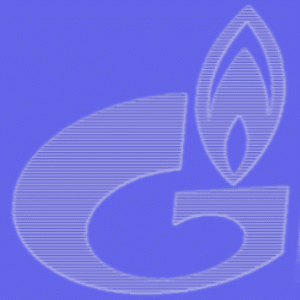 How events of the last four decades shaped Gazprom-Media into the business it is today, justifies an article in its own right. Complexities aside and details for another day, the company appears to enjoy state approval and recognition for its work.
How events of the last four decades shaped Gazprom-Media into the business it is today, justifies an article in its own right. Complexities aside and details for another day, the company appears to enjoy state approval and recognition for its work.
Under parent company Gazprom and subsidiary Gazprom Bank, Gazprom-Media Holding describes itself as the largest media holding in Russia. Gazprom-Media was established in January 1998 and today claims to “shape the future of media technologies in Russia.”
From its glossy website, portfolio of almost 40 TV channels, to its media production facilities and assets that include local YouTube analogue, Rutube, Gazprom-Media looks and sounds like its Western counterparts.
“All of us — producers, engineers, designers, cameramen, developers, scriptwriters and directors, analysts, actors, radio and TV presenters, accountants and lawyers — make the lives of millions of people exciting and rich every day, set trends and move the media industry forward,” the company notes.
Similarities can also be found in the company’s anti-piracy strategies.
Piracy: Borderless and Universally Understood
In its work to protect valuable intellectual property rights, Gazprom-Media left no stone unturned in 2024 tackling copyright infringers.
The company’s latest annual report reveals a preference for site blocking measures. During the course of last year, Gazprom Media says it blocked 17,400 websites & 5,700 Telegram channels for piracy. The company filed over 900 IP lawsuits in 2024, with the holding company emerging the winner from 770, the report adds.
Gazprom-Media’s copyright enforcement strategy sees the company tackle piracy on various fronts. Online platforms are considered a priority, with the company always ready to take action but not averse to negotiating with its unlicensed adversaries. Agreements with “several” pirate sites in 2024 led to the removal of infringing content, Gazprom notes.
Proactive action against messaging platforms in 2024 also led to success. Director of IP protection Pavel Rusakov says that daily monitoring and rapid blocking helped to reduce interest in Telegram, and that led to a decline in use.
Search Engine Takedowns
In common with most major media companies, Gazprom-Media believes that search engine results are better when no pirated content appears.
With requests to remove over 6.2 million infringing links, local search engine Yandex received most attention in 2024. With requests to remove around five million infringing URLs, Google was last year’s runner-up.
Whether Yandex is simply better at indexing Russia-focused pirate sites, leading to the appearance of more links in general, is currently unknown. It’s certainly possible that rightsholders’ takedown notices in the US and EU, including whole site deindexing based on local site blocking orders, have an effect on content appearing.
Whatever the reason, those who use Yandex regularly or even for just a few minutes, notice an immediate difference in performance, regardless of content. In some cases, searches for exactly the same content produce results that are so different, a Groundhog Day of tedious daily searches can find itself transformed.
Reasons for the disparity aren’t easily pinpointed, but if site downranking , deindexing, and URL removals play any role in the situation at Google, the same can’t be said about Yandex.
Is Gazprom-Media Winning?
With the definition of ‘win’ subject to change and often used without context, figures published by Gazprom for 2022 and 2023 are listed below. The data provided isn’t always consistent and terminology can shift too. The descriptions and figures are therefore Gazprom’s own, provided here as-is.
2022
Blocked: 7 million links to pirated content, 67% more than the 4.2 million blocked in 2021.
Removed: 4.6 million links removed from Yandex search results vs. 2.6 million removed in 2021.
Removed: 2.8 million links removed from Google search results vs. 0.9 million removed in 2021.
Blocked: 7,500 Telegram channels.
2023
Blocked: 8.5 million Internet pages, a 19.3% increase over the previous year.
Blocked: 16,000 sites hosting pirated Gazprom-Media content, 8.5% more than in 2022.
Blocked: 6,000 Telegram channels, 16% less than in 2022.
From: TF, for the latest news on copyright battles, piracy and more.
Powered by WPeMatico
